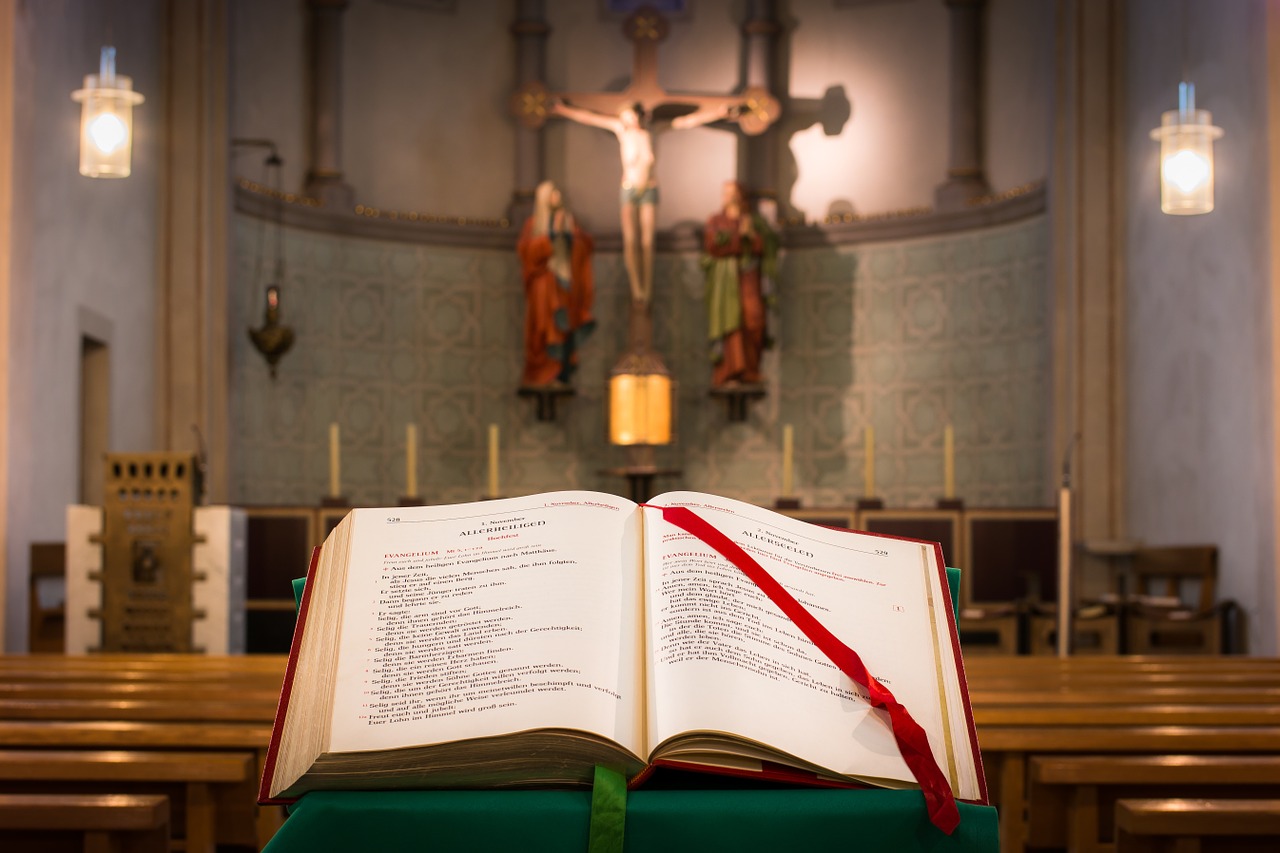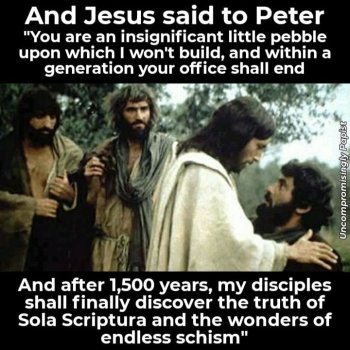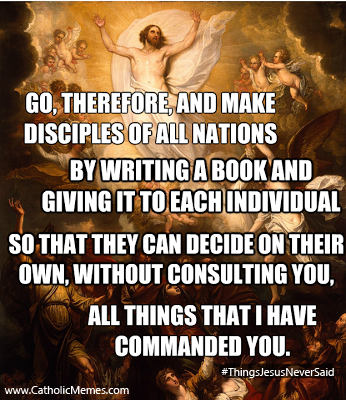Nobody ever said "keys TO the kingdom". You invented a non-sequitur fallacy. "Keys" undeniably represent authority, they are not literal keys. Peter first received the authority to bind and loose as an individual, later given to the Apostles as a collective in Matthew 18:18. This is a clear indication of Peter's primacy that you twist and distort to exclude Peter. This is insane.
Furthermore, "binding and loosing" is a rabbinical term understood by everyone at the time that you attempt to Protestantize.
When you consider or link Matthew 16 as relates to Peter and "the keys of the kingdom" with the book of Acts, you find that Peter was the one responsible for establishing the church, the earthly kingdom, first amongst the Jews at Jerusalem (Acts2), and then amongst the Gentiles commencing with the conversion of Cornelius (Acts 10), which action he then defended to the council at Jerusalem in Acts 11. Peter being the one that established the early church, is therefore validation of Matthew 16 and the Lord’s unique statement to him, creating the setting and providing him with the opportunity,
That is the function of "pope" that you assert and deny at the same time.
wherewithal, and confirmation by heaven via the Holy Ghost to do so (collectively, “the keys”). Note too, that the Holy Ghost falling on individuals uniquely as it did on both occasions, were the only times recorded in the bible for such happening in the manner it did. Both events, that of Acts 2 and Acts 10, were done with heavenly power and authority as noted above, since in both cases, the Holy Ghost demonstrated said power and authority by its physical presence, falling on individuals in both cases as a sign to those present, giving validity to, and substantiation from heaven of Peter’s actions, consistent with the use of the word “of” in Matthew 16:19.
The Holy Spirit descending on the whole Church has nothing to do with the authority Jesus gave to Peter.
The rock - In Matthew 16:18, it's obvious that Peter isn't the rock but rather Christ is, since he is recognized as being the chief cornerstone and/or foundation per the scriptures (Ephesians 2:20, Psalm 118:22-23, Isaiah 28:16, Matthew 21:42-44, 1Cor 3:11, Acts 4:11). Also, Peter in Greek is 'Petros' Πέτρος or Cephas, [masculine gender in the Greek meaning a stone or boulder (Strong's), or rock, individual stone, more insecure or moveable], and the “rock” in Matthew 16:18 is “petra”, πέτρα (feminine gender in the Greek), being rock, cliff, solid formation, solid foundation, bedrock, large rock formation, immoveable and enduring. Also, the church is referred to as being the “bride”, “chaste virgin”, “her” (feminine), etc., and Christ being the bridegroom, which further substantiates the use of “petra” rather than “petros”. If Christ's intent was to build his church upon Peter, why wouldn't he have said "and upon you I will build my church", or “upon petros, or you, Petros I will build my church” and not "upon this rock" (petra)?
Please name any other the other Apostle whom Jesus changed their name. Obviously, Simon bar Jonah was renamed "Rock", the only Apostle whom Jesus changed their name, but this fact means nothing to you.
Mark 3:16; John 1:42 – Jesus renames Simon “Kepha” in Aramaic which literally means “rock.” This was an extraordinary thing for Jesus to do, because
“rock” was not even a name in Jesus’ time. Jesus did this, not to give Simon a strange name,
but to identify his new status among the apostles. When God changes a person’s name, He changes their status. This you also deny.
Gen. 17:5; 32:28; 2 Kings 23:34; Acts 9:4; 13:9 – for example, in these verses, we see that God changes the following people’s names and, as a result, they become special agents of God: Abram to Abraham; Jacob to Israel, Eliakim to Jehoiakim, Saul to Paul. Simon bar Jonah to ROCK. They all become special agents of God, but not Peter??? You make no sense.
Also note that if Peter was established as the so-called first pope and head of the church (as erroneously claimed by Catholics), 1. Why did the Lord say “get thee behind me Satan” to him in Matthew 16:23?
Mark 8:33 – anti-Peter Christians sometimes use this verse to down play Peter’s authority.
This does not make sense. In this verse, Jesus rebukes Peter to show the import of His Messianic role as the Savior of humanity. Moreover, at this point, Peter was not yet the Pope with the keys, and
Jesus did not rebuke Peter for his teaching. Jesus rebuked Peter for his lack of understanding. But you don't get it.
Furthermore, Jesus immediately follows with His teaching on redemptive suffering, which is totally absent in all of Protestantism.
Matt. 10:38 – Jesus said, “he who does not take up his cross and follow me is not worthy of me.” Jesus defines discipleship as one’s willingness to suffer with Him. Being a disciple of Jesus not only means having faith in Him, but offering our sufferings to the Father as He did.
Matt. 16:24;
Mark 8:34 – Jesus said, “if any man would come after me, let him deny himself and take up his cross and follow me.” Jesus wants us to empty ourselves so that God can fill us. When we suffer, we can choose to seek consolation in God and become closer to Jesus.
Luke 9:23 – Jesus says we must take up this cross daily. He requires us to join our daily temporal sacrifices (pain, inconvenience, worry) with His eternal sacrifice.
Luke 14:27 – Jesus said, “whoever does not bear his own cross and come after me, cannot be my disciple.” If we reject God because we suffer, we fail to apply the graces that Jesus won for us by His suffering.
and 2. Why did the disciples quarrel amongst themselves (Luke 9:46) as to who would be the greatest among them, which occurred AFTER Peter’s statement as to who Jesus was (Luke 9:20 and parallel verse Mat 16:16)?
They quarrels among themselves because they were spiritually immature: they didn't understand that
authority goes hand-in-hand with
humility, the same as you don't understand. The "dominating dictator image" of the pope is the wallpaper image of "pope" in the evangelical world and its rather cartoonish. Jesus had just established Peter as head of the Apostles so it looks to me the disciples were arguing who would be next after Peter.
and 3. Why was there contention between Peter and Paul as recorded in Acts 15:2 and Gal 2:11-14 if Peter was the head of the church?
Acts 15:
2 “When therefore Paul and Barnabas had no small dissension and disputation with them,
they determined that Paul and Barnabas, and certain other of them, should go up to Jerusalem unto the apostles and elders about this question.”
Who is
"they"??? The Apostles and elders, that's who. AKA the Magisterium.
Gal 2:11-14
Peter was a hypocrite in that instance, and so Paul rebuked him.
They had no differences theologically. Popes have been rebuked throughout history (e.g., by St. Catherine of Siena, St. Dominic, St. Francis). It doesn’t follow that they have no authority. Jesus rebuked and excoriated the Pharisees, but He told His followers to follow their teaching, even though they acted like hypocrites ((Matt 23:2 ff.).
and 4. Why did the council at Jerusalem send Peter and John to Samaria (Acts8:14) if Peter was the head of the church, yet taking direction from the council at Jerusalem?
Acts 8:14 Now when the apostles which were at Jerusalem heard that Samaria had received the word of God,
they sent unto them Peter and John:
Again, who is
"they"??? The Apostles and elders, for the second time. Because Peter and John were sent doesn't disprove their authority. Somebody with authority had to be sent to Samaria, it happened to be Peter and John, that you argue had no authority or unity.
You’re trying to set the Bible against the Church, which is typical Protestant methodology, and ultra-unbiblical. The Bible never does that.
Also note that no man (in a religious sense, Mat 23:8-9), is to be called father on earth, yet the pope is commonly referred to as the “Holy Father”. And too, Christ is the head of the church which is his body, not Peter (Eph 5:23, Col 1:18)
The "call no man father" is an argument from uneducated fundamentalists who read into scripture what isn't there, just to attack Catholics, and it's been refuted a million times.
Only God is holy by his very essence; however, by a person, place, or thing’s association with God, it too can be called holy. To be called holy is to express the idea of consecration, that someone or something belongs to God. That is why the Bible can call many persons, places, and things holy.
In Genesis 28:16, the place God appears is
“holy.” In Exodus 19:6, God tells the Israelites through Moses, “and you shall be to me a kingdom of priests and a
holy nation.” God’s dwelling place in the Tabernacle is
“holy” (Ex 28:43), as is the city of Jerusalem (Is 48:2). Even a goat, the victim of sacrifice to God, is called
“holy” in Leviticus 10:17.
After Christ’s death and resurrection the Christians called themselves and each other “holy ones” or “saints,” called by God to be his (Rom 1:7). In 1 Peter 1:16 we read, “it is written, ‘You shall be
holy, for I am holy.’”
As for the father part, "Pope" is transliterated from the Greek to the Italian "pappas", which means "father". In the first 3 centuries, every bishop was called "pope", but you have little or nothing to do with
that church.
Put "holy" and "father" together and you have a perfectly BIBLICAL title for the pope.






